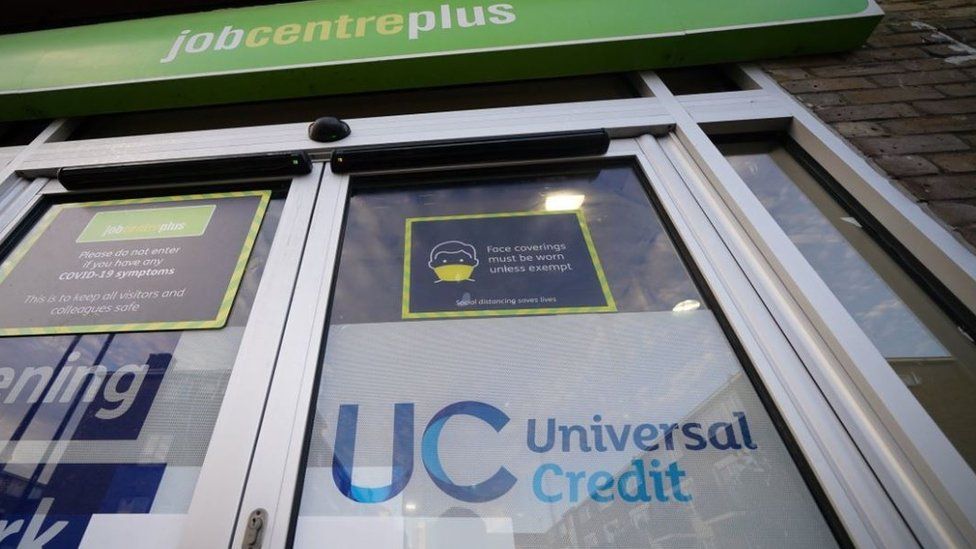Benefit switch could mean misery for thousands of people, say MPs
- Published
- comments

Thousands of vulnerable people are at risk of ending up without welfare payments, MPs have warned.
Just under a million new claimants are being switched to the Universal Credit system, replacing six older payments.
But the cross-party Public Accounts Committee said the transition could see a large number of people slip through the net, causing "real-world misery".
The government said the vast majority of people on tax credits had moved to Universal Credit (UC) successfully.
The Department for Work and Pensions (DWP) is currently working to get just under a million people onto the UC system.
The DWP estimates about 4%, or 40,000 claimants, would have particular difficulty switching, but a National Audit Office report in February warned that 21% of households had not been able to switch and had their benefits stopped.
The Public Accounts Committee (PAC) said face-to-face support must be offered for the transition because these are vulnerable people at risk of losing their benefits.
Committee chair Labour's Dame Meg Hillier said if the transition process "fails even an apparently small proportion of people, it will lead to real-world misery for thousands".
"We must not forget how massive a change it is to how benefits are delivered, impacting millions of people," she said.
"The DWP must make sure that people are not cast into financial hardship due to a bureaucratic change, and that robust support is in place for those vulnerable claimants who need it most."
There are six old benefits - Working Tax Credit, Child Tax Credit, Housing Benefit, Income Support, income-based Jobseeker's Allowance, and income-related Employment and Support Allowance - being rolled into a single UC payment.
The change was announced in 2010 but, as of March last year, about 2.2 million households had still not switched.
Prime Minister Rishi Sunak pledged to "accelerate moving people from legacy benefits on to UC to give them more access to the world of work", in a speech on welfare reform last week.
Alison Garnham, chief executive of Child Poverty Action Group, said she found the DWP's "lack of concern" around people being left without money was "chilling".
She said: "Warnings like the PAC's are coming thick and fast as the DWP steamrolls on with managed migration, leaving vulnerable claimants in its wake - without the benefits they are entitled to and need.
"The DWP must put its spreadsheet targets aside, slow the roll-out of UC right down."
A DWP spokesperson said: "There is a range of support to help people move, including dedicated helplines, extensions and transitional protection for those who need it.
"Universal Credit is having a sustained positive impact on the jobs market, with people on Universal Credit more likely to be in work within three, six and nine months of their claim."
Related Topics
- Published19 April
- Published10 April
- Published6 March